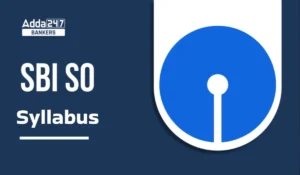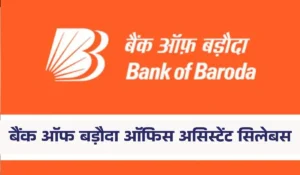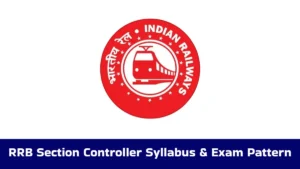प्रिय पाठको,
इस वर्ष आईबीपीएस ने स्पेशलिस्ट ऑफिसर भर्ती परीक्षा के पैटर्न में पूरी तरह से परिवर्तन किया है. ऑनलाइन परीक्षा में दो चरणों के साथ अब उम्मीदवारों को इस भर्ती परीक्षा में सफल होने के लिए ओर कठिन परिश्रम करना होगा. इस भर्ती के लिए तैयारी और अभ्यास शुरू करने से पहले यह बहुत महत्वपूर्ण है कि आप परीक्षा पैटर्न और पाठ्यक्रम में परिवर्तन को समझे. आईबीपीएस स्पेशलिस्ट ऑफिसर में आईटी ऑफिसर के व्यवसायिक ज्ञान के पाठ्यक्रम के बारे में विवरण के लिए आगे पढ़े.
इस साल IT Officer Scale-I के लिए कुल पदों की संख्या 120 हैं. यद्यपि आईबीपीएस इस भर्ती परीक्षा के किसी भी अनुभाग के लिए कोई निश्चित पाठ्यक्रम का उल्लेख नहीं करता है, इस आर्टिकल के माध्यम से छात्रों को इस परीक्षा के पाठ्यक्रम में विभिन्न विषयों से पूछे जाने वाले विभिन्न अध्यायों और विषयों का एक अनुमान प्राप्त कर सकते है ,वह आईबीपीएस मुख्य परीक्षा की तैयारी करने में सहायता प्राप्त हो सकती है. IT IT Officer Scale-I के द्वितीय चरण की परीक्षा ऑनलाइन वस्तुनिष्ठ रूप में आयोजित परीक्षा होगी.
IBPS SO IT Officer Scale-I व्यवसायिक ज्ञान के चरण में निम्नलिखित विषयों से प्रश्न पूछे जा सकते है :
1. Operating System
Simple Batch Systems, Multiprogram batched systems, Time Sharing Systems, Process Concepts and PCB, Process Scheduling, Schedulers and Context Switching, Interprocess Communication, CPU Scheduling, Scheduling Criteria, Scheduling Algorithms- FCFS, SJFS, Priority Scheduling, Round-Robin Scheduling, Multilevel Queue Scheduling, Multilevel Feedback Queue Scheduling, Multiple Processor Scheduling, Real-Time Scheduling, The Critical Section Problem, Semaphores, The Dining Philosophers Problems, Critical Regions, Deadlock- Prevention, Avoidance, Detection, Recovery, Bankers Algorithm, Memory Management, Logical Vs Physical Address Space, Segmentation, Virtual Memory, Demand Paging, Page Replacement Algorithms- FIFO, Optimal Algorithm, LRU, Second Change; Counting Algorithm , Thrashing.
2. Data Structure
Asymptotic Notation, Stacks and Queues, Trees, Algorithms, Binary Trees, Lemma, Heaps and Heapsort, Minimum Spanning Trees, All pair shortest path, Optimal Binary Search Trees, Tree Traversal, Graphs- Search and Traversal techniques, Sorting- Insertion Sort, Selection Sort, Radix Sort, Merging, Complexity of Sorting and Merging Algorithms, Hashing, Chaining, PASCAL, Looping, Break and continue statement, Functions
3. Object-Oriented Programming
Java Basics (History of Java, data types, variables, scope and life time of variables, arrays, operators, expressions, control statements, type conversion and casting, simple java program, concepts of classes, objects, constructors, methods, access control, this keyword, overloading methods and constructors, parameter passing, recursion, nested and inner classes, exploring string class), Inheritance, polymorphism, Encapsulation, Packages and Interfaces, Exception handling, Multithreading, Event Handling, Applets
4. Database Management Systems
Database models, File Management System VS DBMS, Tuple Relational Calculus, Normal Forms, Data-Structure Diagrams, ER Diagram, SQL Basics, Transaction Control.
5. Compiler Design/ Language Processor
Assemblers, Compiler structure, Lexical Analyser, Parsing, Buffer pairs, syntax error handling, Parse tree and derivation, grammar, bottom-up parsing, LR Parsing, Syntax tree, Storage organisation, macro instructions, macro processor, loader, linker, interpreters.
6. Computer Organisation
Number System, Arithmetic Addition and subtraction, Overflow Detection, Decimal Fixed Point Representation, Floating Point Representation, Gray Code, Weighted Code, Excess-3 Code, Error Detection Codes, Parity Bit, Odd Function, Machine Language, Addressing Modes, Program Counter, CPU, General Register Organisation, Control Word, Microprogrammed Control, Data Dependency, Memory Organisation, Cache, Mapping,
7. Microprocessor and Computer Hardware
Microprocessor Architecture and its operations, 8085, 8080A, Bus Organisation, Registers, Accumulator, Stack Pointer, Memory Classification, Flip Flop, R/W Memory, ROM, RAM, 8085 Control and Status Signals, Power Supply and Clock Frequency, Logical Operations, Instruction Format, Stacks, Subroutine, Interrupts, Programmable Interrupt Controller, Interrupt Operation, Ladder Network, D/A Converters, Multiplexer De-multiplexer, Digital Comparator, Parity Generator/Checker, Flip Flop, Ring Counter, Ripple Counter, Up/Down Counter, Synchronous Counter.
8. Computer Network
Reference Models, OSI and TCP Models, Data Transmission, Transmission Medium, IEEE Standards and Protocols- 802.3, 802.4, 802.5, IP Address, NIC, Switching, Networking devices, Internet, Types of Networks
9. Software Engineering
SDLC (Software Development Life Cycle), Software Configuration Management (SCM), Software Development Models, Requirement Elicitation, Software Design and Maintenance, Software Testing: Testing Objectives, Unit Testing, Integration Testing, Acceptance Testing, Regression Testing, Testing for Functionality and Testing for Performance, Top-Down and Bottom-Up Testing Strategies: Test Drivers and Test Stubs, Structural Testing (White Box Testing), Functional Testing (Black Box Testing), Test Data Suit Preparation, Alpha and Beta Testing of Products.Static Testing Strategies: Formal Technical Reviews (Peer Reviews), Walk Through, Code Inspection, Compliance with Design and Coding Standards.
10. Web Technology
Web Page Designing: HTML: list, table, images, frames, forms, CSS, Document type definition, XML: DTD, XML schemes, Object Models, presenting and using XML, Using XML Processors: DOM and SAX, Dynamic HTML.
Scripting: Java script: Introduction, documents, forms, statements, functions, objects; introduction to AJAX, VB Script, Introduction to Java Beans, Advantage, Properties, BDK, Introduction to EJB, Java Beans API.
Server Site Programming: Introduction to active server pages (ASP), Introduction to Java Server Page (JSP), JSP Application Design, JSP objects, Conditional Processing, Declaring variables and methods, Sharing data between JSP pages, Sharing Session and Application Data, Database Programming using JDBC, development of java beans in JSP, Introduction to Servelets, Lifecycle, JSDK, Servlet API, Servlet Packages, Introduction to COM/DCOM/CORBA.
PHP (Hypertext Preprocessor): Introduction, syntax, variables, strings, operators, if-else, loop, switch, array, function, form, mail, file upload, session, error, exception, filter, PHP-ODBC
11. Data warehousing & Data Mining
Data Warehouse Process and Technology: Warehousing Strategy, Warehouse management and Support Processes, Warehouse Planning and Implementation, Hardware and Operating Systems for Data Warehousing, Client/Server Computing Model & Data Warehousing. Parallel Processors & Cluster Systems, Distributed DBMS implementations, Warehousing Software, Warehouse Schema Design, Data Extraction, Cleanup & Transformation Tools, Warehouse Metadata
Data Mining: Overview, Motivation, Definition & Functionalities, Data Processing, Form of Data Preprocessing, Data Cleaning: Missing Values, Noisy Data,(Binning, Clustering, Regression, Computer and Human inspection), Inconsistent Data, Data Integration and Transformation. Data Reduction:-Data Cube Aggregation, Dimensionality reduction, Data Compression, Numerosity Reduction, Discretization and Concept hierarchy, generation.
Data Visualization and Overall Perspective: Aggregation, Historical information, Query Facility, OLAP function and Tools. OLAP Servers, ROLAP, MOLAP, HOLAP, Data Mining interface, Security, Backup and Recovery, Tuning Data Warehouse, Testing Data Warehouse. Warehousing applications and Recent Trends: Types of Warehousing Applications, Web Mining, Spatial Mining and Temporal Mining.
12. Computer and Network Security
Basic security topics, including symmetric and public key cryptography, digital signatures, cryptographic hash functions, authentication pitfalls, and network security protocols.




 SBI SO सिलेबस और परीक्षा पैटर्न 2026, जा...
SBI SO सिलेबस और परीक्षा पैटर्न 2026, जा...
 Bank of Baroda Office Assistant Syllabus...
Bank of Baroda Office Assistant Syllabus...
 RRB Section Controller Syllabus 2026, दे...
RRB Section Controller Syllabus 2026, दे...










